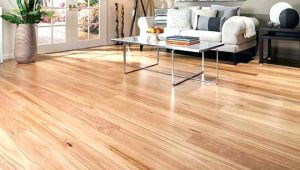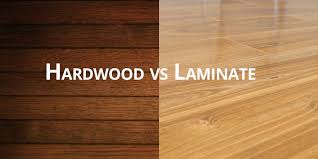People often use the terms laminate and engineered wood interchangeably but few pause to think that both are different kinds of wood despite their similar looks and composition. Here, in this article, we will help you to understand the key differences between engineered wood and laminate flooring. Let us first start with the difference.
The Difference:
Engineered wood is usually a slice of natural wood on top while laminate is much thinner than engineered wood and as the name suggests uses a photographic layer of wood that is painted with a protective layer. Laminate is made up of several layers of compressed materials which start with the backing or the bottom layer that is the foundation and resists moisture, followed by the inner core, above that comes the design or photographic layer and finally has the protective layer on the top to protect the wood from damage.
When it comes to engineered wood, it is made up of the bottom, core and top or veneer layers. Compressed plywood, fibre board or unfinished hardwood usually make up the bottom and the core layers while the veneer or top layer is a thin slice of natural wood.
Which is best?

The short answer is – It all depends on your needs. Laminate is best when you consider cost, want to do DIY installation, have pets such as dogs and cats in the house, durability, low maintenance and radiant heating.
Engineered wood is big on appearance, has resale value, good for the environment, can be repaired, and is moisture resistant and good for radiant heating. To know more about engineered wood flooring prices visit ww.bvg.co.in.
Let us look at the pros and cons of both Laminate and engineered wood in detail based on their
- Appearance
- Cost
- Maintenance
- Durability
Appearance:
Both laminate flooring and engineered wood flooring have their distinct advantages and disadvantages. Let us look at them.
Laminate Flooring Advantages and Disadvantages
The Pros of Laminate Flooring are that it can mimic the look of many different species and cuts of wood irrespective of the supply of the organic materials.
Your floor will have a more artificial look because of its high gloss appearance.
Engineered Wood Advantages and Disadvantages
Since the top layer or the veneer is a piece of natural wood, it is nearly indistinguishable from hardwoods.
Since the top layer is a thin slice of real wood instead of the whole wood, exotic varieties of wood can be obtained at a much lesser price than traditional hardwood flooring.
One of the disadvantages is that the top is susceptible to becoming dull as natural woods are without maintenance and periodic cleaning.
Costs
When it comes to prices, Laminate flooring will always winas it costs significantly less than engineered wood flooring. For more details refer to our laminate flooring price at www.bvg.co.in.
While laminate flooring will be the most economical choice, this does not mean it will be the best choice depending on your requirements.
Care and Maintenance
Laminate Flooring Advantages and Disadvantages
The advantages of laminate flooring is that they are easy to wipe and clean as the top is usually very smooth. Since the flooring doesn’t trap dust like carpets do, it is good for anyone with allergies. Another advantage is that laminate flooring doesn’t get scratches or wear and tear easily compared to natural wood.
The disadvantages of laminate flooring are that the floor doesn’t respond well to too much heat, too much water or power cleaners.
Cleaning the floors requires special products that will retain the shine of the floor. Improper cleaning can reduce the life of the floor’s top layer so it requires special cleaning and care methods.
Engineered Wood Advantages and Disadvantages
The advantages of engineered wood are that dust and allergens are not trapped on the surface and the surface is easy to clean with a wood cleaner.
The disadvantages of maintaining engineered wood are unfortunately that like laminate flooring it requires lot of care and attention in the form of periodic waxing and refinishing while sweeping and vacuuming is also needed to keep them safe from standing water and scratches. Certain varieties of wood may also require more attention as they are prone to collect more dirt.
Durability:
Laminate Flooring Advantages and Disadvantages
Laminate flooring is tough due to compressed layers and the top layer. Laminate flooring is ideal for busy homes and businesses that receive lot of people.
The disadvantages of laminate flooring in terms of durability is that they don’t last as long as hardwood flooring. Once the wear layer is lost, it can’t be refinished.
Engineered Wood Advantages and Disadvantages
Engineered wood is stronger and more water-resistant than hardwoods as it was specifically designed to be better than hardwoods.
Depending on the thickness of the veneer, it can be refinished as well. With good care, engineered wood can last anywhere between 20 to 100 years.
The disadvantages are that since it is made of natural products, engineered wood is not completely immune to damage and rot.


